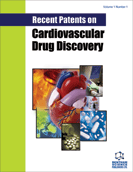Abstract
Oxidative stress in the cardiovascular system, including brain microvessels and/or parenchymal cells results in an accumulation of reactive oxygen species (ROS) and reactive nitrogen species (RNS) compounds thus promoting leukocyte adhesion and increasing endothelial permeability. The resulting chronic injury stimulus results in progressive cellular hypometabolism. We propose that hypometabolism, coupled with oxidative stressors, is responsible for most Alzheimer disease (AD) and cerebrovascular accidents (CVAs) and appears to be a central initiating factor for vascular abnormalities, mitochondrial damage and an imbalance in the activity of vasoactive substances, such as different isoforms of nitric oxide synthase (NOS), endothelin-1 (ET-1), oxidative stress markers, mtDNA and mitochondrial enzymes in the vascular wall and in brain parenchymal cells. At higher concentrations, ROS induces cell injury and death, which occurs during the aging process, where accelerated generation of ROS and a gradual decline in cellular antioxidant defense mechanisms, especially in the mitochondria. Vascular endothelial and neuronal mitochondria are especially vulnerable to oxidative stress due to their role in energy supply and use, which can cause a cascade of debilitating factors such as the production of giant and/or vulnerable young mitochondrion whos DNA has been compromised. Therefore, mitochondrial DNA abnormalities such as overproliferation and or deletion can be used as a key marker for diseases differentiation and effectiveness of the treatment. We speculate that specific antioxidants such as acetyl-L-carnitine and R-alpha lipoic acid seem to be potential treatments for AD. They target the factors that damage mitochondria and reverse its effect, thus eliminating the imbalance seen in energy production and restore the normal cellular function, making these antioxidants very powerful alternate strategies for the treatment of cardiovascular cerebrovascular as well as neurodegenerative diseases including AD. Future potential exploration using mtDNA markers can be considered more accurate hallmarks for diagnosis and monitoring treatment of human diseases. The present article discusses some of the patents regarding the oxidative stress.
Keywords: Biomarkers, cerebrovascular diseases, drug targets, free radicals, hypometabolism, mitochondrial DNA, oxidation, oxidative stress, ALZHEIMER, Hyperlipoproteinaemia
 14
14


